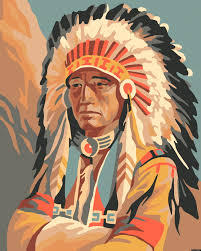native
英 [ˈneɪ.tɪv]
美 [ˈneɪ.t̬ɪv]
- adj. 本国的;土著的;天然的;与生俱来的;天赋的
- n. 本地人;土产;当地居民
使用频率:

记忆方法
将“native”与“n”字母的形状关联,想象它像是一张地图上的原点,代表一个地方的原生居民。这种方法通过视觉联想帮助记忆单词的意思,即“原生的”或“本地的居民”。
以上内容由AI生成, 仅供参考和借鉴
中文词源
native 出生的,本土的,当地的
来自拉丁语nativus,出生,降生,来自PIE*gen,生育,出生,词源同gene,generate.引申词义本土的,当地的。
英语词源
- native
-
native: [14] Native is one of a large family of English words that go back ultimately to the Latin verb nāscī. This meant ‘be born’, and was a descendant of the Indo-European base *gen-, *gn- ‘produce’, which also gave English gene, general, generate, etc. From its past participial stem nāt- was formed the adjective nātīvus ‘from birth, born’, which has produced English native (and also, via Old French, naive [17], which is etymologically the equivalent of ‘born yesterday’), and also its derivative nativity [12] (applied from earliest times specifically to the birth of Christ).
Other English words from the same source include cognate [17], innate [15], nascent [17], natal [14], nation, nature, noel (earlier nowel [14], from an Old French descendant of Latin nātālis ‘of birth’), pregnant, puny, and renaissance [19] (literally ‘rebirth’).
=> cognate, gene, general, generate, innate, naive, nascent, nation, nature, noel, pregnant, puny, renaissance - native (adj.)
- late 14c., "natural, hereditary, connected with something in a natural way," from Old French natif "native, born in; raw, unspoiled" (14c.) and directly from Latin nativus "innate, produced by birth," from natus, past participle of nasci (Old Latin gnasci) "be born," related to gignere "beget," from PIE root *gene-/*gen- "to give birth, beget," with derivatives referring to familial and tribal groups (see genus). From late 15c. as "born in a particular place." From early 15c. as "of one's birth," also used from mid-15c. in sense of "bound; born in servitude or serfdom," also, as a noun "a bondsman, serf." Native American attested from 1956.
- native (n.)
- mid-15c., "person born in bondage," from native (adj.), and in some usages from Medieval Latin nativus, noun use of nativus (adj.). Compare Old French naif, also "woman born in slavery." From 1530s as "person who has always lived in a place." Applied from mid-17c. to original inhabitants of non-European nations where Europeans hold political power, for example American Indians (by 1630s); hence, used contemptuously of "the locals" from 1800. Related: Natives.
权威例句
- 1. We were forbidden, under pain of imprisonment, to use our native language.
- 我们被禁止使用母语,违者将被关进监狱。
- 2. It was his first visit to his native country since 1948.
- 这是自1948年以来他首次回到自己的祖国。
- 3. Before all this the island was populated by native American Arawaks.
- 在所有这一切发生之前,这个岛上居住的是印第安阿拉瓦克人。
- 4. We have our native inborn talent, yet we hardly use it.
- 我们有天生的才能,但我们却几乎未曾使用过。
- 5. The eagle is the animal most sacred to the Native Americans.
- 对印第安人来说,鹰是最神圣的动物。
